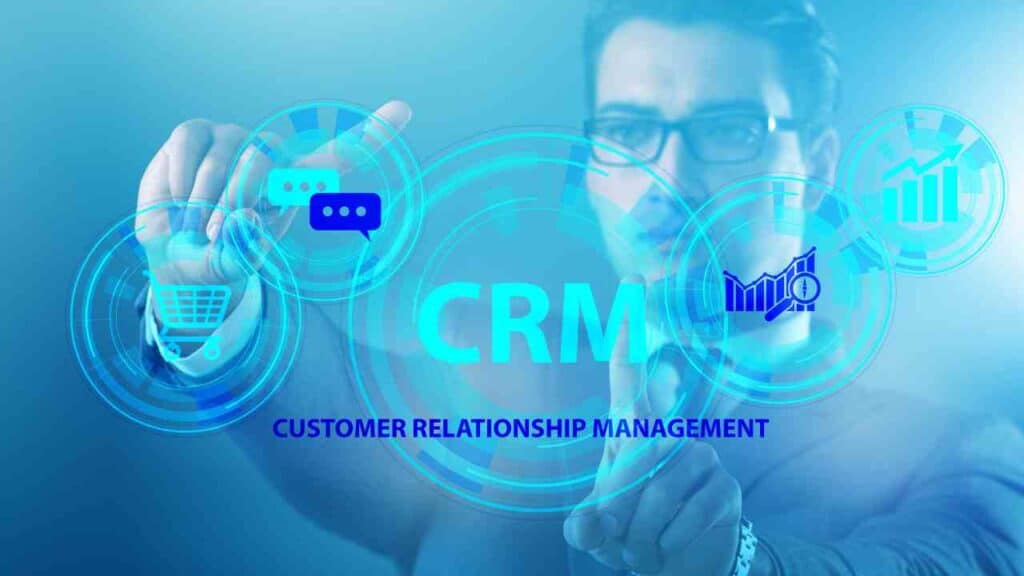Assessing Critical Metrics from CRM

Customer Relationship Management
Customer Relationship Management (CRM) systems have become an essential tool for businesses of all sizes. These platforms enable companies to manage their interactions with customers, streamline sales processes, and improve overall customer satisfaction. However, the true value of a CRM lies in the ability to assess critical metrics that provide valuable insights into the effectiveness of sales and marketing efforts. In this article, we will explore the importance of assessing these metrics and how they can drive business growth.
The Role of CRM in Business Success
A CRM system serves as a centralized hub for storing and managing customer data. It allows businesses to track customer interactions, monitor sales activities, and analyze customer behavior. By leveraging the power of CRM, companies can gain a deeper understanding of their customers, identify trends, and make data-driven decisions.
CRM systems offer a wide range of features and functionalities that help businesses streamline their sales and marketing processes. These include lead management, contact management, opportunity tracking, email marketing automation, and reporting and analytics. By utilizing these features effectively, businesses can improve their sales efficiency, enhance customer satisfaction, and drive revenue growth.
The Importance of Assessing Critical Metrics
Assessing critical metrics from CRM is crucial for businesses to evaluate the effectiveness of their sales and marketing strategies. These metrics provide valuable insights into various aspects of the customer journey, allowing businesses to identify areas for improvement and optimize their processes. Here are some key reasons why assessing critical metrics is essential:
- Performance Evaluation: By analyzing metrics such as conversion rates, sales cycle length, and win rates, businesses can evaluate the performance of their sales team. This information helps identify top-performing sales representatives and areas where additional training or support may be required.
- Lead Generation and Conversion: Metrics like lead source, lead-to-opportunity conversion rate, and lead response time provide insights into the effectiveness of lead generation efforts. By assessing these metrics, businesses can identify the most successful lead sources and optimize their lead nurturing strategies.
- Customer Retention and Satisfaction: Metrics such as customer churn rate, customer satisfaction score, and average response time help businesses gauge customer loyalty and satisfaction. By monitoring these metrics, companies can identify potential issues and take proactive measures to improve customer retention.
- Marketing ROI: Assessing metrics related to marketing campaigns, such as cost per lead, customer acquisition cost, and marketing qualified leads, enables businesses to measure the return on investment (ROI) of their marketing efforts. This information helps allocate resources effectively and optimize marketing strategies.
Case Study: XYZ Company
To illustrate the importance of assessing critical metrics from CRM, let’s consider the case of XYZ Company, a software-as-a-service (SaaS) provider. XYZ Company implemented a CRM system to manage their sales and marketing activities and track customer interactions. By regularly assessing critical metrics, they were able to achieve significant improvements in their business performance.
One of the key metrics XYZ Company focused on was the lead-to-opportunity conversion rate. By analyzing this metric, they identified that leads generated through content marketing had a significantly higher conversion rate compared to leads from other sources. This insight allowed them to allocate more resources to content marketing efforts, resulting in a higher number of qualified opportunities and increased revenue.
Additionally, XYZ Company monitored their customer churn rate closely. They discovered that customers who received regular product updates and personalized support had a lower churn rate. Armed with this information, they implemented a proactive customer success program, providing personalized onboarding and ongoing support to their customers. As a result, their customer churn rate decreased, leading to higher customer retention and increased customer lifetime value.
Key Metrics to Assess
While the specific metrics to assess may vary depending on the nature of the business, there are several key metrics that are universally important for businesses to evaluate. These metrics provide valuable insights into different stages of the customer journey and overall business performance. Here are some key metrics to consider:
- Conversion Rate: The percentage of leads or opportunities that convert into customers. This metric helps evaluate the effectiveness of sales and marketing efforts.
- Sales Cycle Length: The average time it takes to close a deal. This metric provides insights into the efficiency of the sales process and helps identify bottlenecks.
- Customer Lifetime Value (CLTV): The predicted net profit generated from a customer over their entire relationship with the company. CLTV helps businesses understand the long-term value of their customers and make informed decisions regarding customer acquisition and retention.
- Customer Satisfaction Score (CSAT): A metric that measures customer satisfaction with a product or service. CSAT surveys can provide valuable feedback and help identify areas for improvement.
- Customer Churn Rate: The percentage of customers who stop using a product or service over a given period. Monitoring churn rate helps businesses identify potential issues and take proactive measures to improve customer retention.
Get Your FREE 14-Day Trial and Take Your Business To The Next Level with an All-In-One Sales and Marketing Platform for businesses, agencies and marketers.
Assessing critical metrics from CRM is essential for businesses to evaluate the effectiveness of their sales and marketing efforts. By analyzing these metrics, companies can gain valuable insights into various aspects of the customer journey, identify areas for improvement, and make data-driven decisions. Key metrics such as conversion rate, sales cycle length, customer lifetime value, customer satisfaction score, and customer churn rate provide valuable insights into sales performance, lead generation, customer retention, and marketing ROI.
Implementing a CRM system, such as the all-in-one sales and marketing platform offered by SaasExpert.ca, can help businesses streamline their processes and gain access to valuable data. By leveraging the power of CRM and regularly assessing critical metrics, businesses can drive growth, improve customer satisfaction, and achieve long-term success.
Remember, the key to success lies not only in implementing a CRM system but also in utilizing the insights gained from assessing critical metrics to make informed decisions and drive continuous improvement.
Visit SaasExpert.ca – Your All-In-One Sales and Marketing Platform for small businesses, agency owners, and marketers.
Learn more about “Exploring Essential Measurements from CRM” right here.
Frequently asked questions about Assessing Critical Metrics from CRM.

What are the essential CRM metrics I should be tracking? 📊
There are several critical CRM metrics that businesses should monitor to ensure optimal performance. Some of the most essential include:
Net Promoter Score (NPS): This metric measures customer satisfaction and their likelihood to recommend your business to others. A high NPS indicates satisfied and loyal customers. 🌟
Customer Retention Rate: It reflects the percentage of customers you’ve retained over a specific period. A higher rate indicates strong customer relationships. ❤️
Sales Conversion Rate: This metric evaluates the effectiveness of your sales processes by measuring the percentage of leads that convert into paying customers. 📈
Average Response Time: Measures the average time taken to respond to customer queries, reflecting the efficiency of your customer support. ⏱️
Customer Lifetime Value (CLV): Represents the total revenue a business can expect from a single customer account. It emphasizes the importance of retaining customers for long-term profitability. 💰
How can I measure the success of my CRM implementation? 🛠️
Measuring CRM success involves evaluating various performance indicators that reflect the system’s effectiveness. Key metrics include user adoption rates, data accuracy, sales revenue, customer satisfaction scores, and ROI. By analyzing these metrics, businesses can determine the value derived from their CRM system and identify areas for improvement. 🎯
Why are CRM benchmarks important? 📏
CRM benchmarks provide a standard against which businesses can measure their CRM performance. By comparing their metrics with industry benchmarks, companies can assess their strengths, identify areas of improvement, and develop strategies to achieve best-in-class performance. Benchmarks offer a roadmap for continuous improvement and growth. 🌱
What are the key performance indicators (KPIs) within CRM software? 🔑
CRM KPIs are specific metrics that businesses track within their CRM system to gain insights into customer relationships and sales processes. Some vital KPIs include lead conversion rate, customer churn rate, average deal size, and sales cycle length. These KPIs provide a comprehensive view of CRM performance and guide businesses in optimizing their strategies. 🔍
How can I conduct a CRM audit effectively? 🔍
A CRM audit involves a thorough review of your CRM system to assess its efficiency and effectiveness. To conduct a successful audit:
Gather Feedback: Engage with users to understand their experiences and challenges with the CRM. 🗣️
Review Data Accuracy: Ensure that the data within the CRM is accurate, up-to-date, and free from duplicates. 📊
Assess User Adoption: Measure the percentage of users actively using the CRM and identify any barriers to adoption. 📈
Evaluate Integrations: Check the integrations with other systems and ensure seamless data flow. 🔗
Recommend Improvements: Based on the audit findings, suggest enhancements to optimize the CRM’s performance. 🚀
I hope these FAQs provide a comprehensive understanding of the importance of assessing critical metrics from CRM!






